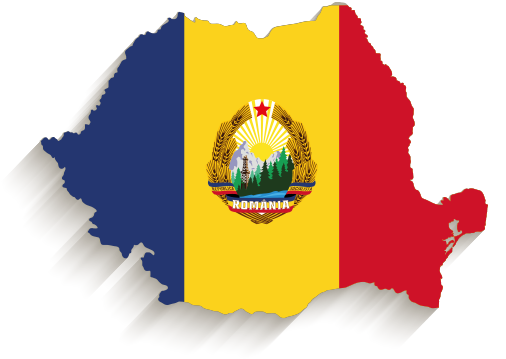(Grant Agreement n. 669194)
In the effort to reorganise Romania’s foreign trade, starting in the late 1960s the Romanian authorities also paid considerable attention to economic research institutes, which were often transferred from one institution to another and reorganised. The Institute of Economic Research, established in 1953, remained affiliated with the Romanian Academy until 1970, when it was transferred to the newly established Academy of Social and Political Sciences, under the authority of which it remained until 1990.
Within the general system of research institutions of the Academy of Social and Political Sciences, the Central Institute for Economic Research was subordinated to the Supreme Council for Economic and Social Development (which was a joint party and state body) and was responsible for the coordination of scientific research in the field of economic sciences. Under its authority were the Institute for the Study of the International Economic Situation (established in 1967), the Institute of Studies and Research on Planning (of the State Planning Committee), the Centre for Financial and Monetary Research (of the Ministry of Finance), the Academy of Economic Studies and the economic faculties in universities. The Institute for the Study of the International Economic Situation was also subordinated to the Ministry of Foreign Trade. In 1976, this Institute was reorganised and took another name – the Institute of World Economy.
The research programmes of these economic research institutions were proposed and validated in accordance with the directives of the party on Romania’s economic development and international economic cooperation. The studies and proposals they drew up with regard to Romania’s economic development and economic relations with foreign entities were also based on the party line and directives and were subjected to revision or approval by hierarchically superior institutions or people, up to the Council of Ministers, the Secretariat and the Permanent Presidium of the Central Committee of the party.
However, one should not underestimate the contribution of these research institutes to policymaking. Romania’s approach to the European Economic Community (EEC) could be traced to a study by the Institute for the Study of the International Economic Situation from the late 1960s which recommended three types of measures: direct contacts with EEC institutions in parallel with bilateral relations with each EEC member state; attention to how the Council for Mutual Economic Assistance (CMEA) would affect Romania-EEC relations and how Romania’s approach to the EEC would affect its relations with the CMEA allies; and using the GATT to secure better trade conditions for Romania in its relations with the EEC.
*This text summarises some of the research findings of PanEur1970s team member Elena Dragomir, which are published as a chapter in PanEur1970s’ academic edited book. For a link to the e-book, please see Romania’s “Overview” webpage of this map.
|
Study on new forms of Romania’s commercial relations with the countries of the Common Market (EEC)
AMAE, Fond 1974, File 5845/1974, p. 67-202 | 025495/19.06.1974
Available only in the Archive: https://www.mae.ro |
|
Telegram no 025550/22.12.1978, Iulian Văcărel (Romania's Ambassador in Brussels) to Cornel Burtică (Deputy prime minister) and Ștefan Andrei (Minister of Foreign Affairs) regarding Romania-EEC relations
AMAE, Fond 1978, File 3307, p. 64-69 | 025550/22.12.1978
Available only in the Archive: https://www.mae.ro |
|
Study: The Common Market
AMAE, Problem 241/2C52/1968, Common Market, vol. I, p. 16-81 | 45/26.01.1968
It presents the EEC's evolution and makes proposals regarding Romania's policy towards the Common Market. - Available only in the Archive: https://www.mae.ro |
